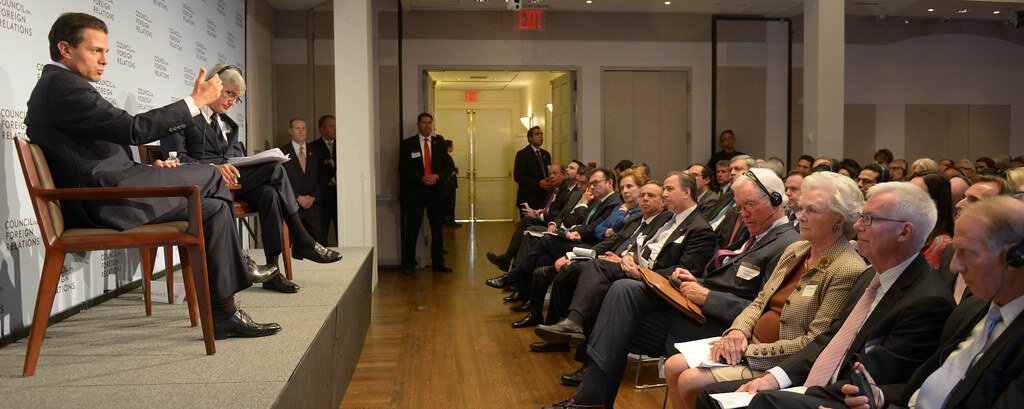BY JENNIFER (JENNY) LEE
Jenny Lee is a second-year MA student with a minor in Energy, Resources, and Environment. Her research interests include the intersection of climate change and public health with a regional focus on China. This summer, she interned with the Energy Security and Climate Change program at the Council on Foreign Relations.
Perspectives: Where did you intern over this summer?
JL: I completed an internship with the Council on Foreign Relations (CFR)—an independent think tank, membership organization, and publisher. More specifically, I worked as the Climate Change Policy intern in the Energy Security and Climate Change program. Normally the internship would take place in Washington, DC or New York, NY, but my internship occurred virtually this time due to the ongoing pandemic.
Perspectives: How did you find this internship, and how did the hiring process go?
JL: Since I hope to pursue a career at a think tank after graduation, I was familiar with CFR’s internship program. My SAIS network proved useful when I went to apply; while conducting an informational interview about SAIS with a prospective student, I learned that she was currently employed by CFR. I offered advice about graduate school, and she in turn taught me more about CFR specifically and her experience with the application process.
The hiring process at CFR, from using their online portal to participating in an initial phone screening, went smoothly from the very beginning. I subsequently interviewed with different members of the team for which I would eventually work. Once accepted, I completed official paperwork virtually, and then the interns all had a group orientation at the start of the program.
Perspectives: What did you work on during your internship?
JL: Internships can often vary, not just among think tanks but even among each organization’s departments. The Energy Security and Climate Change program has a smaller, close-knit team, so I benefitted from working with each of the team members. My responsibilities changed weekly, but I did a mix of research, project management, marketing, and editing.
I enjoyed researching a range of topics including climate change outcomes from the G7 summit, the challenges of hard-to-abate sectors, and takeaways from the latest IPCCC report. Early in the internship, I wrote a speech for one of the CFR experts about COVID-19’s impact on climate change efforts in New Zealand and the U.S.!
Perspectives: Did you find you had previous coursework or work experience that proved especially useful during the internship or the application process?
JL: I had interned at a think tank previously, though not for a few years, so I had a general idea of the expectations for the internship. Knowing the role that think tanks play in the policy space helped me better appreciate the rationale behind the work of CFR. In terms of specific content, both my courses at SAIS and my own background facilitated my research for this internship because I understood foundational climate change concepts and could digest more rigorous scientific language.
Perspectives: What did you take away from this internship for your academic and professional interests?
JL: This interest reaffirmed my desire to work at a think tank following graduation from SAIS. Think tanks serve a vital translational role in the policymaking process, often interpreting research from experts into actionable recommendations for policymakers.
Additionally, this internship marked my first formal experience working on climate change, so it also encouraged me to continue learning about environmental policy for the remainder at my time at SAIS. Specifically, I learned more about the value of pursuing adaptation simultaneously with mitigation efforts since this is a focus of CFR senior fellow Alice Hill. In conjunction with cutting emissions, nations will need to implement adaptation and planning to deal with the impacts that will not reverse quickly given the order of magnitude of the timescales of the effects from climate change forecasted in the latest IPCCC report.
Although I did not have the opportunity to do so at this specific internship, I look forward to incorporating my regional focus (China) into my future work on climate change policy.
Perspectives: What should future SAIS students interested in this internship know?
JL: You may not “break into” the think tank sector on your first try—stay persistent and keep an open mind as you look for similar postings. Like many fields in DC, networking can help you secure a position, so say “yes” to opportunities to get to know your classmates, professors, alumni, and others in your social circles. For any internship, always do your research, and do not hesitate to reach out to people with whom you may share a connection (find SAIS alumni on LinkedIn, email a professor even if you have never met, etc.).
PHOTO CREDIT: Presidencia de la República Mexicana is licensed under CC BY 2.0

